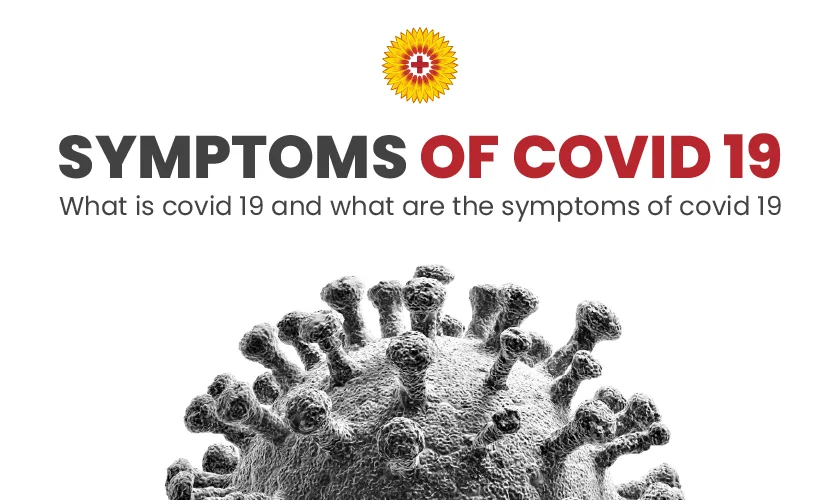In 2019, the world was hit by a global pandemic caused by a novel coronavirus called SARS-CoV-2 – the disease it causes is known as COVID-19.
A lasting impact of COVID-19 has been left on the world economy, causing permanent changes.
Even in 2023, variants of COVID-19 continue to circulate.
It is essential to understand what COVID-19 is and fully understand its symptoms to protect ourselves and get timely medical care when necessary.
In this blog post, we will discuss the nature of COVID-19, its symptoms, and other relevant aspects of this ongoing global health crisis.
What Is COVID-19?
COVID-19 is a respiratory illness caused initially by the SARS-CoV-2 virus.
It is spread mainly through respiratory droplets during coughing, sneezing, talking, or breathing.
Touching potentially infected surfaces and touching your face can also spread the virus.
Remember that some people infected with SARS-CoV-2 can remain asymptomatic, making it easier for the virus to spread undetected.
The virus usually causes mild to moderate respiratory illness and recovers without treatment.
Those who suffer from serious illness are older, and those with underlying medical conditions such as heart disease, diabetes, chronic respiratory disease, or cancer.
Anyone can get COVID-19, which can cause severe health problems or even death.
Being well-informed about the disease and how it spreads is the best way to prevent and slow down transmission.
Here’s what to do:
- Stay at least 1 meter apart from others.
- Wear a mask when you’re out in public.
- Wash your hands frequently to avoid infection.
- Follow the guidance and get vaccinated.
What Are the Symptoms of COVID-19?
The symptoms of COVID-19 can vary from mild to severe and may appear 2 to 14 days after today. Some of the most common symptoms are:
- High fever
- Continuous cough (usually dry)
- Fatigue
- Shortness of breath or difficulty breathing
- Muscle or body aches
- Headache
- New loss of taste or smell
- Sore throat
- Congestion or runny nose
- Nausea or vomiting
- Loss of appetite
- Diarrhea
Check the CDC’s list of symptoms associated with COVID-19.
What’s the Average Duration of COVID Symptoms?
Symptoms of COVID-19 vary.
Some people can have mild symptoms lasting a week or two, but others might have more severe ones.
You must see a doctor if symptoms worsen or don’t improve after a reasonable period.
What’s the Difference Between A Cold and COVID?
Due to overlapping symptoms, it may be difficult to differentiate between COVID-19 and the common cold.
Both conditions can cause coughs, sore throats, and congestion, but COVID-19 can be more severe and include other symptoms like fever, loss of taste or smell, and breathing problems.
If you aren’t sure about your symptoms, it is best to consult a healthcare professional for guidance and get tested for COVID-19.
Cases Still Remain High
According to WHO’s COVID-19 tracker, globally, as of 21 June 2023, there were 768,187,096 confirmed COVID-19 cases, including 6,945,714 deaths since the start of the pandemic.
In the last seven days, 211,331 new cases and 1,161 new deaths have been reported to WHO.
What COVID-19 Variants are Circulating in June 2023?
The most prevalent variant nationwide is XBB.1.5 (a subvariant of Omicron), followed by XBB.1.16 and XBB.1.9.1.
COVID-19 Symptoms 2023
Symptoms of XBB.1.5 are similar to the earlier Omicron subvariants, including coughing and congestion, shortness of breath and low oxygen levels that require medical attention.
As XBB.1.5 spreads, COVID-19 may show different signs and symptoms than Alpha or Delta variants earlier in the pandemic.
Taste and smell loss can still happen with Omicron variants and subvariants, but it’s less common.
Symptoms include fever, chills, fatigue, muscle or body aches, sore throat, nausea and vomiting.
It can last between five and seven days, depending on the person.
As a result of vaccination, acquired immunity, and the evolution of Omicron to cause a less intense acute infection – symptoms have changed.
Does COVID-19 Testing Tell Me Which Variant I Have?
No, COVID-19 tests don’t tell you what variant caused your infection – the tests detect the virus, not the variant.
Treatment of Hearing Loss After COVID-19
A review says COVID-19 can damage the audio-vestibular system, resulting in sudden sensorineural hearing loss (SSNHL).
Immediately seek medical attention if you experience hearing loss after a COVID-19 infection.
A healthcare professional with audiology expertise can examine your condition and recommend appropriate treatment options.
Medications, hearing aids, or other interventions can help.
Those experiencing hearing loss due to COVID-19 can benefit from early intervention and management.
Conclusion
It’s essential to get medical advice if you have symptoms consistent with COVID-19.
We put our community’s health first at Urgent Care of Kansas.
If you have any questions, need medical assistance, or need COVID-19 testing, please don’t hesitate to contact us.
The Centers for Disease Control and Prevention (CDC) recommends visiting vaccines.gov to find a vaccination center near you.
Keep checking the CDC’s website for the latest COVID-19 info.
Stay informed and stay safe.



No comment